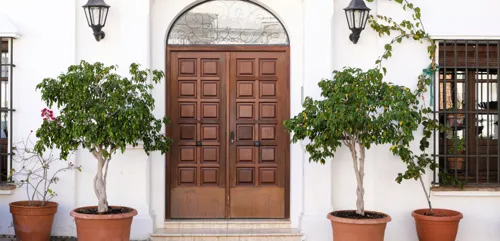Choosing the right type of lock is essential for enhancing your home’s security, convenience, and accessibility. Traditional and smart locks offer different benefits, from security features to ease of use. Here’s a detailed look at the key factors to consider when deciding between traditional and smart locks for your doors.
Security levels
The security provided by traditional and smart locks varies, primarily in how they prevent unauthorized access. Traditional locks, especially deadbolts, rely on mechanical strength and are often highly resistant to forced entry. However, they may be susceptible to lock-picking or bumping if they lack advanced security features. Smart locks, on the other hand, often come with additional security options, such as keyless entry, encryption, and activity monitoring, which can alert homeowners to potential security breaches.
- Traditional lock: Built for strength and durability, these locks are designed to withstand forced entry.
- Smart lock: Includes modern security options like remote monitoring and encrypted access codes for added protection.

Convenience and accessibility
Smart locks offer significant convenience by allowing keyless entry, remote access, and app-based control, making it easy to grant or revoke access to others. This feature can be especially useful for households with multiple members or those who frequently need to grant access to visitors, such as cleaners or pet sitters. Traditional locks, while reliable, require physical keys, which can be inconvenient if lost or shared among many people.
- Traditional lock: Limited to physical keys, which can be misplaced or duplicated.
- Smart lock: Allows for flexible, key-free access, with remote control features.
Installation requirements
Installation differs considerably between traditional and smart locks. Traditional locks, particularly deadbolts, are usually straightforward to install and require minimal modifications. Smart locks may need additional setup, especially if they’re integrated with a home automation system. Some models may require electrical wiring or special modifications to the door, which may add to installation time and complexity.
- Traditional lock: Simple to install, requiring little to no adjustments to the door.
- Smart lock: Installation may involve additional steps or modifications, especially for advanced models with smart home integrations.
Durability and reliability
Durability and reliability are critical for ensuring long-lasting security. Traditional locks are typically very durable, with fewer electronic components that could fail over time. Smart locks, however, may rely on batteries or electronic parts, which can require occasional maintenance and battery replacement. While many smart locks are built to withstand frequent use, traditional locks often have an edge in terms of mechanical reliability.
- Traditional lock: Minimal maintenance with few parts, offering long-lasting reliability.
- Smart lock: Electronic components and batteries may need occasional maintenance or replacement to ensure functionality.

Cost and maintenance
Costs for traditional and smart locks differ, not only in initial expenses but also in maintenance requirements. Traditional locks are generally more affordable upfront and require minimal maintenance. Smart locks, while offering advanced features, come with a higher initial price and may incur additional costs for battery replacement or technical support if any electronic issues arise.
- Traditional lock: Generally lower initial cost and little ongoing upkeep.
- Smart lock: Higher upfront investment, with potential for recurring costs related to power and technical support.
More information about the price of doors can be found in our cost guide.
Deciding between traditional and smart locks depends on what you prioritize. Traditional locks offer simplicity, durability, and cost-effectiveness, while smart locks provide convenience and advanced security features. By evaluating your needs, you can choose the option that best enhances your home’s security and lifestyle.
Request a quote for doors on Procompare today to find the perfect lock for your security needs!



